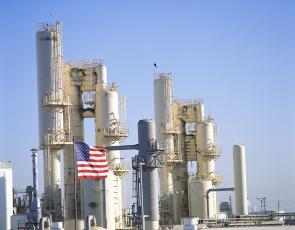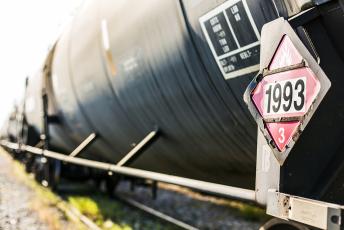WASHINGTON, D.C. — American Fuel & Petrochemical Manufacturers (AFPM) today issued the following statement from Rob Benedict, AFPM Vice President of Petrochemicals & Midstream, commending the U.S. Surface Transportation Board (STB) on its unanimous decision to amend the emergency service regulations for freight rail. The final rule, finalized Wednesday, streamlines the process for rail shippers to request and receive emergency relief when faced with severe deteriorations in rail service.
“Poor rail service—which is all too common—can negatively affect productivity throughout key sectors of the economy. For refiners and petrochemical manufacturers, disruptions in rail service can have widespread impacts, including slowing production and forcing reductions in utilization. In extreme cases, perpetually late freight rail pickups and deliveries and reduced frequency of freight rail service can cause emergencies like temporary shutdowns.
“This final rule updates a once onerous process, allowing the Board to act more quickly to provide relief to shippers experiencing service-related emergencies. This rule will help to contain and resolve localized problems, such as production cuts and facility idling, so they do not have ripple effects to other parts of the network and, especially, to end consumers.
“AFPM appreciates the important role the STB plays in providing oversight of freight rail service and its impact on shippers. We believe competition is the greatest protection for consumers and will be the impetus for lasting service improvements. To that end, we welcome this action and also urge the Board to continue pursuing policies to reintroduce much-needed competition into rail markets—as they remain controlled by a limited number of major railroads against whom shippers have very little recourse.”
The American Fuel & Petrochemical Manufacturers (AFPM) is the leading trade association representing the makers of the fuels that keep us moving, the petrochemicals that are the essential building blocks for modern life, and the midstream companies that get our feedstocks and products where they need to go. We make the products that make life better, safer and more sustainable — we make progress.


